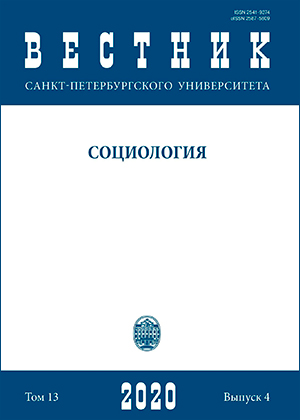The effect of financial anxiety on the insurance behavior of Russians in the context of the 2019-nCoV Pandemic
DOI:
https://doi.org/10.21638/spbu12.2020.401Abstract
In the context of the economic and political uncertainty associated with the 2019-nCoV pandemic, it is necessary to determine the socio-psychological factors involved in the transformation of the behavior of insurance consumers under the influence of a biogenic threat. This study measures financial anxiety and its impact on the insurance behavior of Russian citizens. The correlation, comparative, and regression analyses of the financial anxiety of Russian citizens cover three stages of observation: before the start of the 2019 nCoV pandemic (“FA up to 19 nCoV; N = 766), during the period of quarantine measures announced in Russia in March 2020 (“FA 19-nCoV-1”; N = 856), and after the relaxation of quarantine measures at the end of April 2020 (“FA 19-nCoV-2”; N = 963). Psychological analysis data were obtained from the online survey “Financial anxiety (in the context of insurance)”. The questionnaire is psychometrically reliable and easy to use. It includes five measurement scales: MR1 — Physical manifestations of financial incentive anxiety, MR2 — With money shortages and financial uncertainty, MR3 — The value of insurance coverage, MP4 — Financial Confidence, and MR5 — Perception of insurance and investment risks. It was found that Russian citizens consider it important to have insurance coverage for a “rainy day”, and they showed confidence in the insurance market during the biogenic crisis. However, unfortunately, during the 19-nCoV-1 and 19-nCoV-2 periods, Russian citizens did not feel financially secure, unlike in the period before 19-nCoV. Women showed high scores for physical manifestations of financial anxiety and low financial confidence in the future, in contrast to men, regardless of the observation period.
Keywords:
financial anxiety, insurance behavior, economic security of the person, financial confidence after COVID-19
Downloads
References
References
Downloads
Published
How to Cite
Issue
Section
License
Articles of "Vestnik of Saint Petersburg University. Sociology" are open access distributed under the terms of the License Agreement with Saint Petersburg State University, which permits to the authors unrestricted distribution and self-archiving free of charge.




